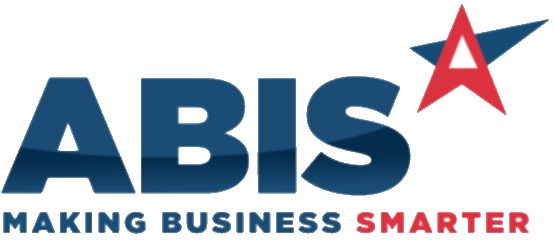Difference between revisions of "Journal Entries PO Receipt"
From Adjutant Wiki
| (4 intermediate revisions by one other user not shown) | |||
| Line 1: | Line 1: | ||
__NOTOC__ | __NOTOC__ | ||
| − | + | ==General Information== | |
A PO Receipt will debit the Item Control account and credit PO Clearing (aka Accrued AP). | A PO Receipt will debit the Item Control account and credit PO Clearing (aka Accrued AP). | ||
| Line 9: | Line 9: | ||
'''Please note that your PO Clearing Account in the GL should reconcile to your Unbilled PO Receipts report. If it doesn't, then the most likely cause is an AP invoice that was distributed to the PO Clearing account without actually clearing a PO receipt.''' | '''Please note that your PO Clearing Account in the GL should reconcile to your Unbilled PO Receipts report. If it doesn't, then the most likely cause is an AP invoice that was distributed to the PO Clearing account without actually clearing a PO receipt.''' | ||
| + | ===Control Account=== | ||
| − | + | When a '''stock item''' is received, the Inventory Control account is determined by the Control Account listed on the [http://www.abiscorp.com/faq/images/8/8e/JE_Inventory_Control_Account.png OHF tab of the Item Master]. | |
| − | + | If that account is blank or invalid, then the Control Account listed on the [http://www.abiscorp.com/faq/images/4/4d/JE_Item_Control_Acct_Screen.png Warehouse screen] will be used. | |
| − | [ | ||
| − | If that account is blank or invalid, then the Control Account listed on the | + | If that account is blank or invalid, then the Control Account listed on the [http://www.abiscorp.com/faq/images/6/67/JE_PO_Acct_Screen.png CID Maintenance screen] will be used. |
| − | |||
| − | + | Non-Stock items follow the same rules, however the user may enter a [http://www.abiscorp.com/faq/images/6/67/JE_PO_Acct_Screen.png GL account directly onto the PO ]to debit an account. | |
| − | [ | ||
| − | + | ===PO Clearing Account=== | |
| − | |||
| − | + | The PO Clearing account is determined by the PO Clearing account listed the [http://www.abiscorp.com/faq/images/8/83/JE_OHF_PO_Clearing_Screen.png OHF tab of the Item Master]. | |
| − | + | If that account is blank or invalid, then the PO Clearing account listed on the [http://www.abiscorp.com/faq/images/3/3e/JE_WH_PO_Clearing_Screen.png Warehouse screen] will be used. | |
| − | |||
| − | |||
| − | If that account is blank or invalid, then the PO Clearing account listed on the | ||
| − | |||
| − | |||
| − | |||
| − | |||
| + | If that account is blank or invalid, then the Control Account listed on the [http://www.abiscorp.com/faq/images/2/21/JE_CID_PO_Clearing_Screen.png CID Maintenance screen] will be used. | ||
===PO Receipt >> AP Invoice >> AP Check=== | ===PO Receipt >> AP Invoice >> AP Check=== | ||
| Line 50: | Line 41: | ||
|} | |} | ||
| − | '''Please note that the Cost of Goods entry is made when the item you received is shipped to a customer (not when you receive it). This aligns your cost and revenue entries by recognizing the corresponding cost with each sale.''' | + | <u>'''Please note that the Cost of Goods entry is made when the item you received is shipped to a customer (not when you receive it). This aligns your cost and revenue entries by recognizing the corresponding cost with each sale.'''</u> |
[[Category: Accounts Payable]] | [[Category: Accounts Payable]] | ||
[[Category: General Ledger]] | [[Category: General Ledger]] | ||
| − | [[Category: | + | [[Category: Purchasing]] |
Latest revision as of 11:23, 5 December 2022
General Information
A PO Receipt will debit the Item Control account and credit PO Clearing (aka Accrued AP).
The credit to PO Clearing will be cleared when the receipt is invoiced in AP. If the invoice is created without clearing the receipt(s), the Clear Unbilled PO Receipts screen can be used to clear the credit.
Please note that your PO Clearing Account in the GL should reconcile to your Unbilled PO Receipts report. If it doesn't, then the most likely cause is an AP invoice that was distributed to the PO Clearing account without actually clearing a PO receipt.
Control Account
When a stock item is received, the Inventory Control account is determined by the Control Account listed on the OHF tab of the Item Master.
If that account is blank or invalid, then the Control Account listed on the Warehouse screen will be used.
If that account is blank or invalid, then the Control Account listed on the CID Maintenance screen will be used.
Non-Stock items follow the same rules, however the user may enter a GL account directly onto the PO to debit an account.
PO Clearing Account
The PO Clearing account is determined by the PO Clearing account listed the OHF tab of the Item Master.
If that account is blank or invalid, then the PO Clearing account listed on the Warehouse screen will be used.
If that account is blank or invalid, then the Control Account listed on the CID Maintenance screen will be used.
PO Receipt >> AP Invoice >> AP Check
The following is a list of typical journal entries that would be recorded from time of PO Receipt through issuing payment to the vendor.
| Transaction | Debit | Credit |
|---|---|---|
| PO Receipt | Inventory Control | Accrued AP |
| AP Invoice | Accrued AP | Accounts Payable |
| AP Check | Accounts Payable | Cash |
Please note that the Cost of Goods entry is made when the item you received is shipped to a customer (not when you receive it). This aligns your cost and revenue entries by recognizing the corresponding cost with each sale.
